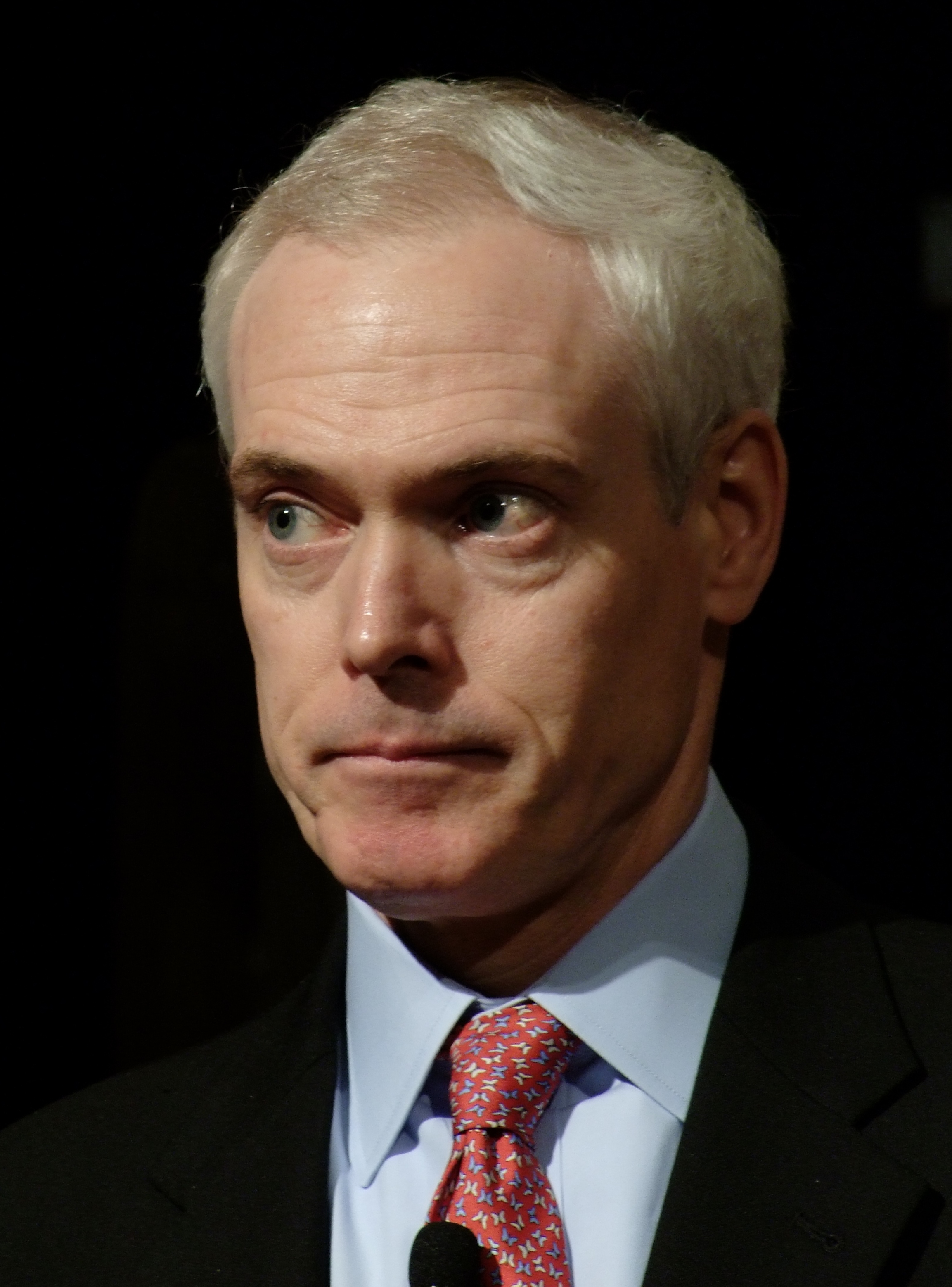Highlighted section cited in: Lisa Marshall (2004), Speak the Truth and Point to Hope: The Leader's Journey to Maturity. p. 32
Good to Great, 2001
Contexto: For no matter what we achieve, if we don't spend the vast majority of our time with people we love and respect, we cannot possibly have a great life. But if we spend the vast majority of our time with people we love and respect – people we really enjoy being on the bus with and who will never disappoint us – then we will almost certainly have a great life, no matter where the bus goes. The people we interviewed from the good-to-great companies clearly loved what they did, largely because they loved who they did it with.
James C. Collins: Frases en inglés
“The purpose of bureaucracy is to compensate for incompetence and lack of discipline.”
Fuente: Good to Great: Why Some Companies Make the Leap... and Others Don't
Fuente: Good to Great: Why Some Companies Make the Leap... and Others Don't
“Great vision without great people is irrelevant.”
Fuente: Good to Great: Why Some Companies Make the Leap... and Others Don't
“Bad decisions made with good intentions, are still bad decisions.”
Fuente: How The Mighty Fall: And Why Some Companies Never Give In
“A company should limit its growth based on its ability to attract enough of the right people.”
Fuente: Good to Great: Why Some Companies Make the Leap... and Others Don't
Fuente: Good to Great: Why Some Companies Make the Leap... and Others Don't
“By definition, it is not possible to everyone to be above the average.”
Fuente: Good to Great: Why Some Companies Make the Leap... and Others Don't
“A culture of discipline is not a principle of business, it is a principle of greatness.”
Fuente: Good To Great And The Social Sectors, 2005, p. 1
“Put your best people on your biggest opportunities, not your biggest problems. In”
Good to Great: Why Some Companies Make the Leap... and Others Don't
Fuente: Built to Last: Successful Habits of Visionary Companies, 1994, p. 73
Fuente: Built to Last: Successful Habits of Visionary Companies, 1994, p. xx
James C. Collins, in interview in: Fast Company online magazine, October 2001.
As cited in: Margaret A. Byrnes, Jeanne Baxter (2006), The Principal's Leadership Counts!. p. 99
Good To Great And The Social Sectors, 2005
Fuente: Good To Great And The Social Sectors, 2005, p. 1
Book abstract, as cited in: Joe Kelly, Louise Kelly (1998), An Existential-systems Approach to Managing Organizations. p. 256
Built to Last: Successful Habits of Visionary Companies, 1994
Fuente: Built to Last: Successful Habits of Visionary Companies, 1994, p. 199
What is a visionary company? Visionary companies are premier institutions -- the crown jewels -- in their industries, widely admired by their peers and having a long track record of making a significant impact on the world around them. The key point is that a visionary company is an organization -- an institution. All individual leaders, no matter how charismatic or visionary, eventually die; and all visionary products and services -- all "great ideas" -- eventually become obsolete. Indeed, entire markets can become obsolete and disappear. Yet visionary companies prosper over long periods of time, through multiple product life cycles and multiple generations of active leaders.
Book abstract, as cited in: Joe Kelly, Louise Kelly (1998), An Existential-systems Approach to Managing Organizations. p. 256
Built to Last: Successful Habits of Visionary Companies, 1994
